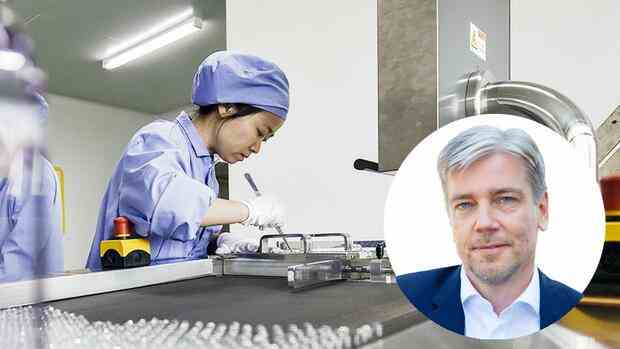In the face of global supply chain problems, political interventions and commodity price pressures, the few remaining suppliers cannot always meet demand, leading to drug shortages.
Now Berlin has changed course in a quick action: fixed amounts have been suspended. Overnight, the health insurers should pay significantly more money for certain (especially children’s) medicines.
However, the situation with medicines is similar to that with energy: Higher prices in the short term cannot create a new supply in a highly regulated industry that is being driven towards globalization. Production facilities are working at full capacity, raw materials are fully booked for months.
>> Also read: Personalized pills: Digitally printed medicines are intended to improve therapy
This shows that Germany would do well not only to discuss Russian gas. Our economic relationships as a whole need to be put to the test in order to quickly identify similar neuralgic points.
It’s time to draw the right conclusions from the past and not repeat old mistakes! In some areas, Europe has already decided.
For example, chip production with public funding is being rebuilt in Europe after the supremacy of primarily Asian manufacturers has led to ever-decreasing market shares in recent years. The same applies to battery cell production or a European cloud. These initiatives are intended to strengthen Europe’s technological sovereignty again.
Unfortunately, the Ministry of Health’s legislative impulse is going in the wrong direction
The situation with medicines also needs to be discussed: Europe obtains more than 60 percent of its active pharmaceutical ingredients from China and India. For comparison: In the USA, the import share is around 35 percent.
After all: Today, a large part of the development and production of innovative, especially biotechnological processes – unlike the production of generics – still takes place in Europe. The largest and most innovative location is Germany. In Germany we still have the opportunity to keep this industry of the future here and to build on it.
Unfortunately, the latest legislative impulse from the Federal Ministry of Health is going in the wrong direction. The framework conditions for the reimbursement of innovative preparations in Germany were fundamentally worsened with the GKV Financial Stabilization Act.
In particular, the step-by-step development of new treatment options (so-called “step innovations”), which is important for medical progress, will be penalized by the new law: it should no longer be possible to recognize them in statutory health insurance reimbursements. Once again only the low price should count – now also with the innovative preparations.
In the logic of the German price system (AMNOG), for example, the prices for new cancer drugs that address very small, specific types of tumors with a few hundred patients are sometimes based on very old – non-specific – chemotherapies. This pricing does not reflect the realities of research and production in Germany.
Germany should knowledge-intensive value creation
The consequences of such decisions are predictable: German and European manufacturers will be increasingly forced to research, develop and produce in other regions of the world.
The result: Germany and Europe would have to rely on other parts of the world to ensure the rapid development of vaccines and medicines in the event of a crisis and to deliver them to Europe just as quickly.
A country whose population will age rapidly in the coming years and which itself has few raw materials should urgently consider how knowledge-intensive value creation can be strengthened. This makes Germany and Europe technologically sovereign. And in the case of the pharmaceutical industry, it ensures the supply of vital therapies.
The author: Matthias Wernicke is Managing Director of Merck Healthcare Germany and Chairman of the Committee on Economic Policy in the Association of Research-Based Pharmaceutical Companies.
More: Generic manufacturers want to take more drugs off the market.
